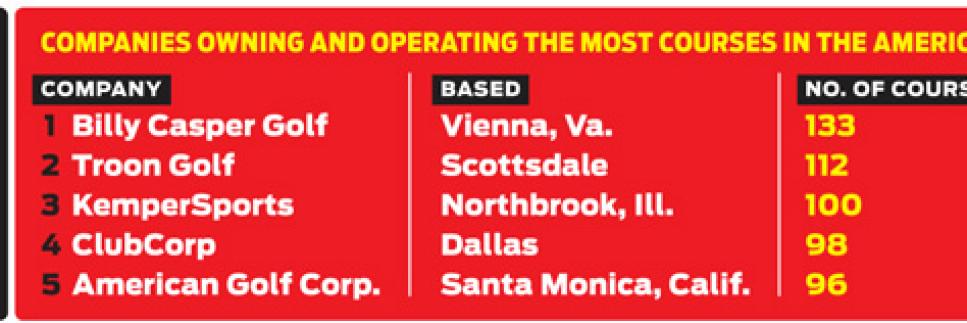The Carolina Contrarian

Tough as the U.S. economy has been on golf in recent years, there has been an upside for John McConnell: buying opportunities. McConnell, a deep-pocketed former software entrepreneur, has bought seven private clubs throughout the Carolinas. He expected to close on his eighth, TPC Wakefield Plantation in Raleigh, in mid-July.
McConnell, 61, is a tiny player in a business increasingly dominated by big corporations. But he has a clear vision for his little portfolio of courses, and a lot of cash. That combination has many in the industry paying attention. "Golf has been decimated by investors who have no vision other than their short-term exit strategy," says Davis Sezna, president of La Quinta Resort & Club. "Clubs have to earn their members to survive, and John understands that."
McConnell's first purchase was the Donald Ross-designed Raleigh Country Club, bought out of bankruptcy for $6.3 million in 2003. "One of their members I'd known for a long time said, 'You ought to go buy that club.' I said, 'Really? I love that course.' He set up a meeting, and it happened." Since then McConnell has acquired courses by Tom Fazio (Treyburn Country Club and Old North State Club), Pete Dye (Cardinal Golf & Country Club), Arnold Palmer (Musgrove Mill) and Greg Norman (the Reserve Club). McConnell bought Sedgefield Country Club, another Ross layout and site of the PGA Tour's Wyndham Championship, last December.
His total expenditure, including improvements to the courses, comes to approximately $33 million, he says. He has borrowed none of it.
McConnell's philosophy starts with a simple idea: He believes traditional country clubs are viable businesses, assuming you run them right. The most important element, he says, is the golf course and he doesn't want to hear about softening it or making it more player-friendly. "I asked Pete Dye for advice when he was working on the renovation of Cardinal. He told me, 'Mr. McConnell, all I know is, my toughest courses have waiting lists.' "
Other key elements are outstanding service and a willingness to try new ideas. McConnell happily admits most of his "new ideas" come from other clubs. "That's the beauty of business. If I see something I like, I'll bring it to our clubs." He cites a practice area he saw recently at Kiawah Island's Cassique course. "We'll do the same practice area at the Reserve, and members will love it."
At a time when many private clubs are opening their doors to public play, McConnell resists it. "I'm convinced that the more access you give to people, the less interested they are in buying memberships," he says. He does make one exception: Up to 15 groups a year may stay and play his courses as part of a "McConnell Golf Trail" promotion. Three-night, three-round packages start at $800 a person.
Part of his marketing to members, too, includes joining one club and playing his others up to 10 times a year. Initiation fees range from $5,000 to $45,000 and monthly dues from $350 to $600.
Having multiple clubs under one corporate umbrella is likely more important to McConnell than it is to most members. "One of the first things I learned is you need more than one club if you want to make money," says McConnell, who made his fortune as a top executive at software companies Medic Computer and A4 Health Systems. Now he has one comptroller and two staffers handling essentially all the accounting for his clubs. Rather than employ multiple full-salaried general managers, he has one chief operating officer oversee a team of less-expensive "clubhouse managers." All his ground crews report to one super, all his golf pros to one director of golf, all his cooks to one head chef, and so on.
Not every acquisition has greeted McConnell with open arms. Some Reserve members sued when he said he'd wipe out their membership deposits, which had been sold to them as refundable. He backed away, let the club go into bankruptcy (wiping out their deposits), and bought it a year later. A group of Sedgefield members also opposed the sale of their club, arguing its financial problems were manageable without his help. After nearly a year of wrangling, he got what he wanted. What won them over? "Reality," McConnell says with a laugh.
Yes, reality is pretty sobering for the private-club business these days. And it's likely to get worse before it gets any better. "There are way too many properties," says McConnell, who notes that every week he is approached by at least one or two clubs looking for a buyer. "Consolidation happens in every business. Like any industry, there will probably be two or three companies that dominate." Will his be one of them? Says McConnell: "I know we'll continue to grow."
